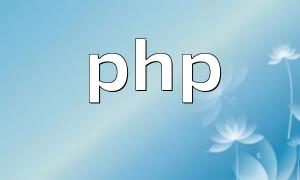This article will guide you on how to utilize PHP to call Baidu Translation API to achieve German to Chinese translation functionality. Baidu Translation API offers a stable and efficient multilingual translation interface, suitable for integration in various applications.
First, visit the Baidu Developer Platform to register an account and create a new translation application. After completion, you will receive a unique API key for subsequent interface calls.
Baidu officially provides a PHP SDK to simplify API calls. Install the SDK using Composer:
composer require baidu-translation/translation-sdk
After installation, include the autoload file in your code:
require_once 'vendor/autoload.php';
Configure your application ID and key to complete SDK initialization:
use BaiduTranslator\Translation;
$config = [
'appId' => 'your_app_id',
'appKey' => 'your_app_key'
];
$translator = new Translation($config);
Call the translate method, passing the German text and target language "zh" to get the Chinese translation:
$sourceText = "Guten Tag";
$targetLanguage = "zh";
$result = $translator->translate($sourceText, $targetLanguage);
echo $result;
The above code will return the corresponding Chinese translation such as "Hello".
After calling the translate method, you can check if it succeeded and process the result accordingly:
if ($result !== false) {
// Handle the translation result, e.g., save it or return to frontend
} else {
echo $translator->getError();
}
If the call fails, use getError method to get detailed error information.
By following the steps in this article, you can easily leverage PHP combined with Baidu Translation API to implement automatic German to Chinese translation functionality. Register an account, install the SDK, initialize configuration, and call the interface step-by-step to quickly develop multilingual translation services.
This method is not only suitable for German but can also be extended to multiple language pairs, providing strong internationalization support for your application.
Related Tags:
API









